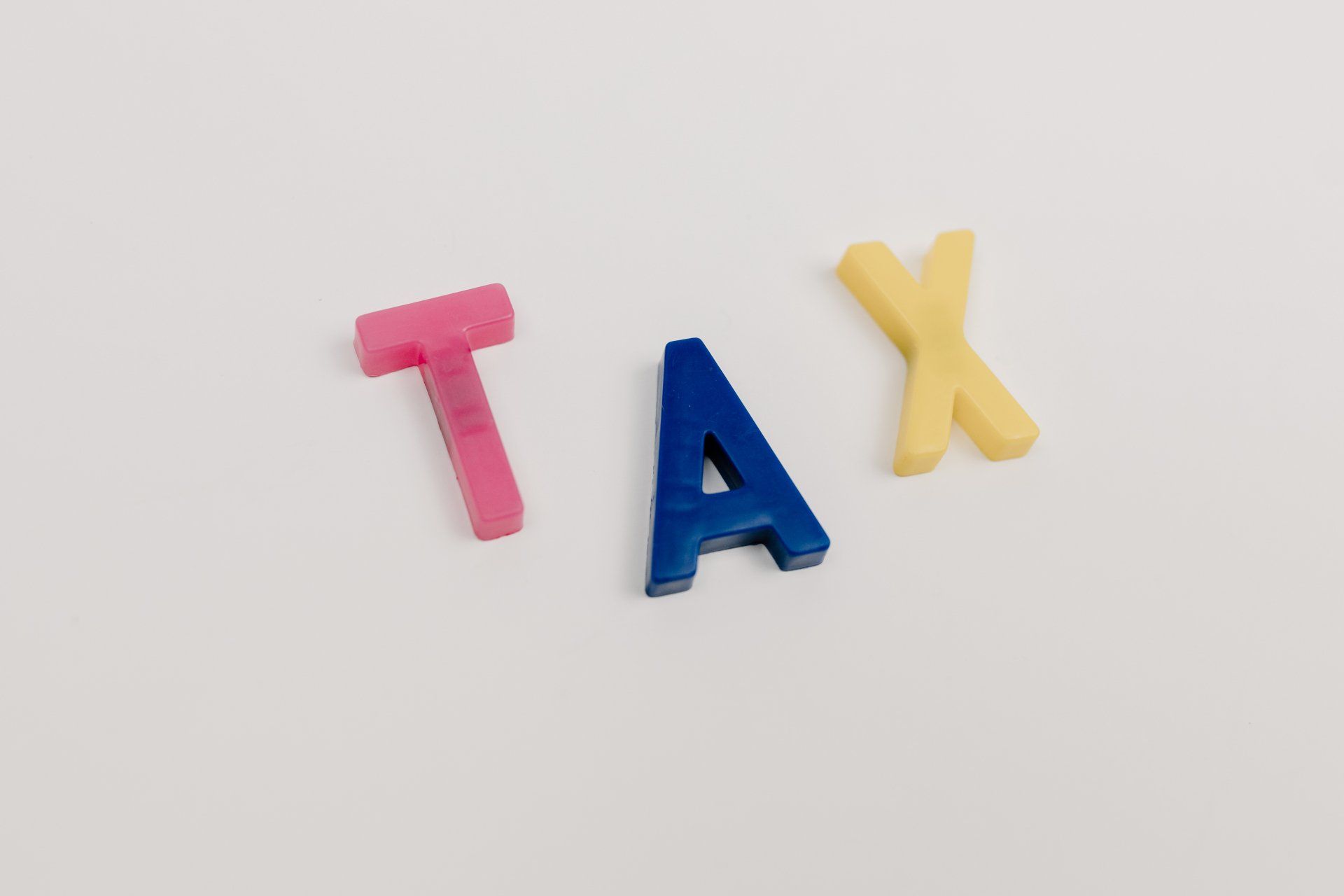How to Prepare and File Corporate Tax in Canada
We offer accounting services that are both timely and thorough, and our rates are very competitive. Please contact us right away for any of your accounting and tax needs.
Tax services can help individuals and businesses navigate the complex tax code and ensure compliance with government regulations, potentially saving them money and reducing the risk of penalties or audits.
All industries, regardless of size or type, can benefit from professional accounting and tax services to manage their financial operations and meet legal compliance requirements.
Accounting services can provide important financial information and insights to help businesses make informed decisions and improve their overall financial performance.
Late and back taxes can lead to penalties and interest charges, and can cause financial stress, it is important to address them as soon as possible with the help of a tax professional.
Contact us
For all your accounting and tax services we are here to help you
We will get back to you as soon as possible
Please try again later
To file your small business and corporate income taxes in Canada, you can use the following.

As a small business owner in Canada, it is important to understand the process of preparing and filing your corporation income tax return. By properly managing your taxes, you can maximize tax benefits and ensure compliance with the Canadian Revenue Agency (CRA). In this comprehensive guide, we will walk you through the steps involved in preparing and filing your corporate tax return, providing you with the information you need to navigate the process successfully.
Understanding the Filing Requirements
Before diving into the specifics of preparing and filing your corporate tax return, it is important to understand the filing requirements set by the CRA. All resident corporations, with the exception of tax-exempt Crown corporations, Hutterite colonies, and registered charities, are required to file a corporation income tax (T2) return every tax year, regardless of whether there is any tax payable. This includes non-profit organizations, tax-exempt corporations, and inactive corporations.
Non-resident corporations may also be required to file a T2 return in certain situations, such as carrying on business in Canada, having a taxable capital gain, or disposing of taxable Canadian property. It is essential to review the CRA guidelines to determine if your corporation falls under the filing requirements.
Determining Your Corporation's Tax Year
The tax year of a corporation, also known as the fiscal period, is the period for which the corporation calculates its income and expenses for tax purposes. It is important to determine your corporation's tax year as it affects the filing deadline for your corporate tax return. The CRA provides specific rules for determining and changing your corporation's tax year.
When the corporation's tax year ends on the last day of a month, the return must be filed by the last day of the sixth month after the end of the tax year. If the last day of the tax year is not the last day of a month, the return must be filed by the same day of the sixth month after the end of the tax year2. It is crucial to ensure that you file your return within the specified deadline to avoid penalties.
When to File Your Corporate Income Tax Return
Filing your corporate income tax return within the prescribed deadline is crucial to avoid penalties and maintain compliance with the CRA. The filing deadline for most corporations is within six months of the end of the tax year. However, it is important to note that the deadline may vary depending on the corporation's tax year-end.
For example, if your corporation's tax year-end is on March 31st, the filing deadline would be September 30th. Similarly, if the tax year-end is on June 30th, the filing deadline would be December 31st. It is important to mark these dates on your calendar and set reminders to ensure timely filing of your corporate tax return.
Gathering the Necessary Information
Before you begin preparing your corporate tax return, it is essential to gather all the necessary information and documentation. This will help streamline the process and ensure accuracy in reporting your corporation's income and expenses. Some of the key information and documents you may need to gather include:
- Financial statements, including balance sheets, income statements, and cash flow statements.
- General Ledger records.
- Records of revenue and expenses.
- Payroll records.
- Inventory records.
- Bank statements.
- Documentation of any deductions or credits you plan to claim.
Organizing and maintaining proper records throughout the year will make the process of gathering this information much smoother. It is recommended to consult with a professional accountant or tax advisor to ensure you have all the necessary documents and information in order.
Choosing the Right Tax Preparation Software
The use of tax preparation software can significantly simplify the process of preparing and filing your corporate tax return. The CRA certifies commercial software that meets their specifications, ensuring accuracy and compliance with their guidelines. It is essential to choose CRA-certified software that is suitable for your corporation's needs.
Using tax preparation software allows you to file your return electronically, providing immediate confirmation of receipt by the CRA. Electronic filing also enables faster processing and potential refunds, reduces mailing costs, and promotes environmental sustainability by minimizing paper usage. Many certified software options are available, and it is important to select one that aligns with your corporation's requirements.
Understanding the T2 Corporation Income Tax Return
The T2 Corporation Income Tax Return is the standard form used by corporations to report their income, deductions, and taxes payable to the CRA. It is a comprehensive nine-page return that any corporation can use. The T2 return requires detailed information about your corporation's financial activities, including revenue, expenses, assets, liabilities, and taxes payable.
The T2 return must be completed accurately and in accordance with the CRA guidelines. It is crucial to ensure that all applicable schedules and forms are completed and attached to the return, providing supporting documentation for the reported amounts. Failure to provide accurate information or comply with the CRA's guidelines may result in penalties or additional scrutiny from the tax authorities.
Filing Your Corporate Tax Return Electronically
The CRA encourages corporations to file their tax returns electronically using the Corporation Internet Filing service. By filing electronically, you can enjoy several benefits, including immediate confirmation of receipt, faster processing times, and potential refunds. Electronic filing also helps reduce mailing costs and promotes environmental sustainability by minimizing paper usage.
To file your corporate tax return electronically, you must use CRA-approved software that has been certified for Corporation Internet Filing. This ensures that the software meets the CRA's specifications and facilitates accurate and secure transmission of your return. You can file electronically through the CRA's Corporation Internet Filing service, My Business Account (if you are a business owner), or Represent a Client (if you are an authorized representative or employee).
Filing Your Corporate Tax Return Without Web Access Code
If you do not have a web access code, you can still file your corporation return online through "Transmit a return" using My Business Account (if you are the business owner) or Represent a Client (if you are an authorized representative or employee). This option allows you to file your return securely without the need for a web access code.
When filing without a web access code, it is important to ensure that all required information and supporting documentation are included with your return. Failure to provide complete and accurate information may result in delays or penalties. It is recommended to review the CRA guidelines and consult with a professional accountant if you have any questions or need assistance with the filing process.
Mandatory Electronic Filing for Certain Corporations
Certain corporations are required to file their tax returns electronically, as mandated by the CRA. Corporations with annual gross revenues exceeding $1 million are subject to mandatory electronic filing, with exceptions for insurance corporations, non-resident corporations, corporations reporting in functional currency, and corporations exempt from tax payable under section 149 of the Income Tax Act.
It is important to note that, as of proposed changes, the $1 million threshold will be eliminated for tax years starting after 2023. This means that most corporations will be required to file their tax returns electronically, regardless of their annual gross revenues5. Compliance with the mandatory electronic filing requirement is crucial to avoid penalties and ensure timely submission of your corporate tax return.
Conclusion
Preparing and filing your corporate tax return in Canada may seem like a daunting task, but with proper knowledge and guidance, it can be manageable. By understanding the filing requirements, gathering the necessary information, choosing the right tax preparation software, and filing electronically, you can streamline the process and ensure compliance with the CRA.
It is always recommended to consult with a professional accountant or tax advisor to ensure accuracy and maximize tax benefits. They can provide valuable insights, identify eligible deductions and credits, and help you navigate the complexities of the tax system. By staying informed and proactive, you can fulfill your tax obligations as a small business owner in Canada and make the most of available tax benefits.
Remember, accurate and timely filing of your corporate tax return is essential to maintain compliance with the CRA and avoid penalties. Stay organized, keep thorough records, and seek professional assistance when needed to ensure a smooth tax filing process for your corporation.
References
- Canada Revenue Agency - Corporation Income Tax Return
- Canada Revenue Agency - Determining your corporation's tax year.
- Canada Revenue Agency - Corporation Internet Filing
- Canada Revenue Agency - Filing without a web access code
- Canada Revenue Agency - Mandatory electronic filing





Contact Us
We will get back to you as soon as possible.
Please try again later.




